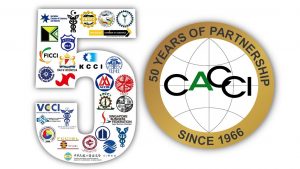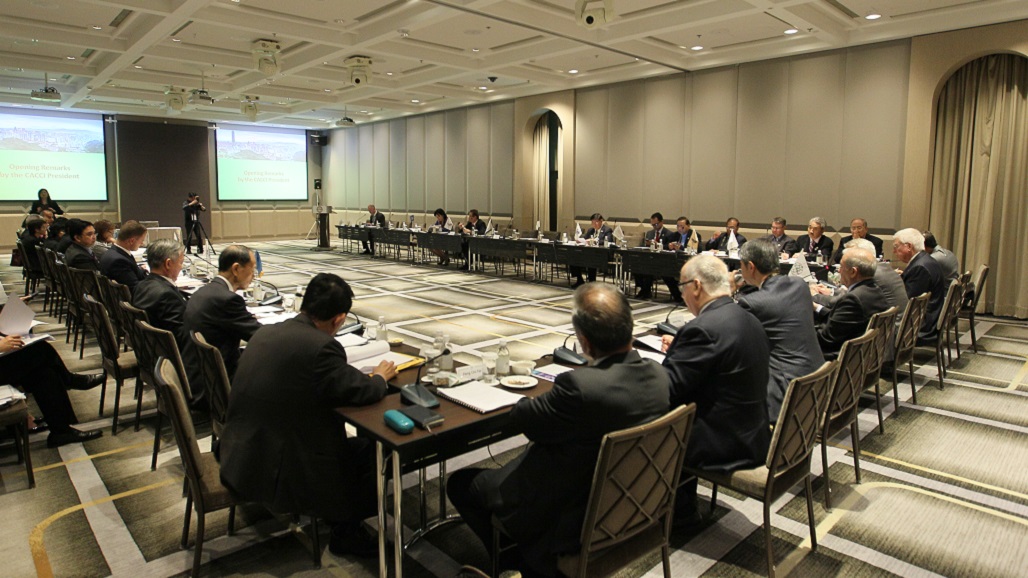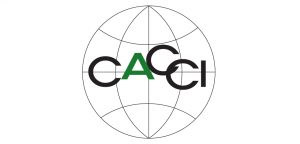IV CACCI Summit
The Taipei Conference also served as an occasion for CACCI officers and members to celebrate the 50th Anniversary of the Confederation. Special activities were lined up lined up to help commemorate this important milestone of the Confederation. One such activity was the CACCI Summit Meeting, which gathered together the presidents, chairmen and CEOs of all CACCI Primary Members primarily to: (a) review the accomplishments of the Confederation over the 50 years since its founding; (b) re-visit its vision and mission as well as its goals and objectives in light of the current conditions and recent developments in the regional and global market environment; and (c) prepare a road-map of its future direction.
A CACCI Summit Declaration was issued after the Summit Meeting. In the Declaration, the Summit Meeting participants pointed out that Asian countries are expected to lead global economic expansion in the years ahead amidst current economic slowdown and uncertainties in major economies, but need to cooperate and partner with each other to help accelerate economic growth. However, CACCI also recognizes that the region today is facing challenging economic conditions. With growth in advanced economies tepid, risk aversion increasing in global financial markets, and the commodity super-cycle coming to an end, CACCI says the world economy is providing little impetus to Asian growth. Given this new context, CACCI says that partnership and cooperation – both within and across national boundaries – should be one of the principal concerns of countries and of the business communities in the Asia-Pacific region. However, CACCI also maintains that growth needs to be both economically inclusive, and be environmentally sustainable. CACCI members stressed the need for economic empowerment of women, expressing strong support of the APEC Leaders declaration to strengthen the mainstreaming of gender equality and women’s empowerment across APEC’ work to ensure equal access to quality education and economic resources.
The Future Agenda of CACCI
November 24, 2016, Marriott Hotel, Taipei, Taiwan

(2) CACCI recognizes that over the past five decades, a new economic reality has emerged in Asia. Many of the region’s economies grew significantly over the period, enabling Asia to emerge as a dominant force in the global economy. Many countries in the continent pulled off economic “miracles”, and several became economic powerhouses. Asia as a whole has made unprecedented strides in reducing poverty and improving broad development indicators.
(3) As a result, the region has grown bigger and richer. The region today accounts for about 40 percent of the world’s GDP – up from 25 percent in 1990 – and contributes about two-thirds of global economic growth. With a population of some 2.8 billion people (nearly half of the world’s total), a GDP of some US$14 trillion, an average per capita GDP of US$5,200, and a total trade amounting to roughly US$8 trillion, Asian countries constitute a substantial market. These figures only serve to underscore the importance of the Asian region as a major player and contributor in the global economy. Indeed much of the progress made in the world market in recent years has been achieve due to invaluable contributions from the region.
(4) Many analysts believe that the centre of gravity of the global economy is shifting towards Asia and that this trend is most likely to continue in the decades to come, with the region’s economies expected to continue to grow at an average annual rate of 5 percent, leading global economic expansion. With a combined population exceeding those of other major economies, Asia is expected to be the driving force behind the world’s economic growth in the years ahead.

(6) Given this new context, CACCI is convinced that partnership and cooperation – both within and across national boundaries – should be one of the principal concerns of countries and of the business communities in the Asia-Pacific region. CACCI believes that today, more than ever, regional cooperation and integration plays a critical role in accelerating economic growth, reducing poverty and economic disparity, raising productivity and employment, and strengthening institutions. CACCI supports the APEC Leaders’ commitment – expressed during their recent Peru meeting – to build a dynamic, harmonious and open economy in the Asia-Pacific region featuring innovative development, interconnected growth and shared interests by re-affirming free and open trade and investment, accelerating regional economic integration, promoting competitive markets, encouraging economic and technical cooperation, and facilitating a favorable and sustainable business environment.
(7) However, CACCI also maintains that growth needs to be both economically inclusive, lifting millions of people in Asia out of poverty, and be environmentally sustainable. We endorse the APEC Leaders’ declaration to strengthen efforts to ensure decent work and work life quality for all, especially socially vulnerable groups, by providing access to quality inclusive education and vocational training, boosting entrepreneurship, improving social protection, and enhancing regional cooperation. There is much to do in ensuring the survival of SMEs, keeping regional and global trade open, continuing reforms to promote ease of doing business, investing in human capital and technology to meet the changing skills requirements of the markets, ensuring inclusive economic growth, and moving forward with clean energy and clean technologies to confront the challenge of climate change, among others.






